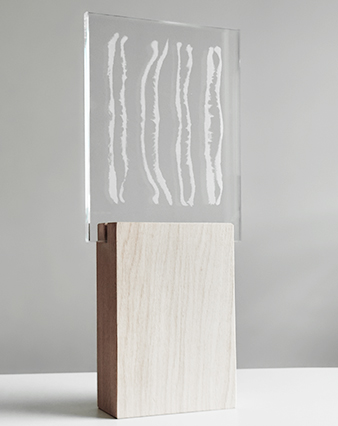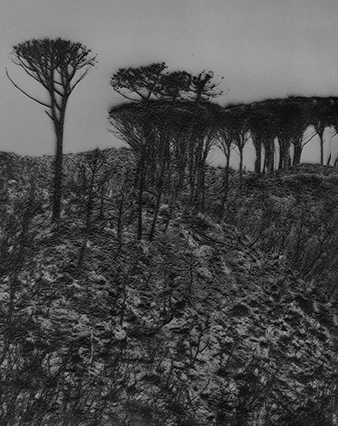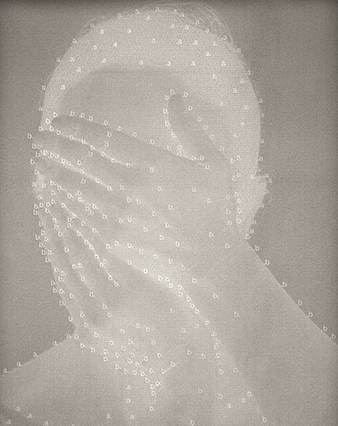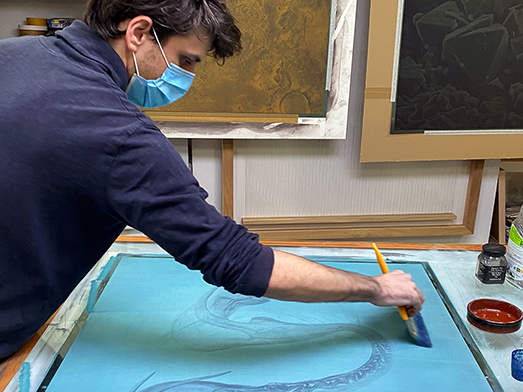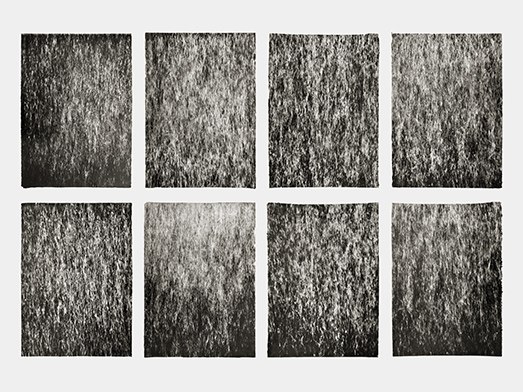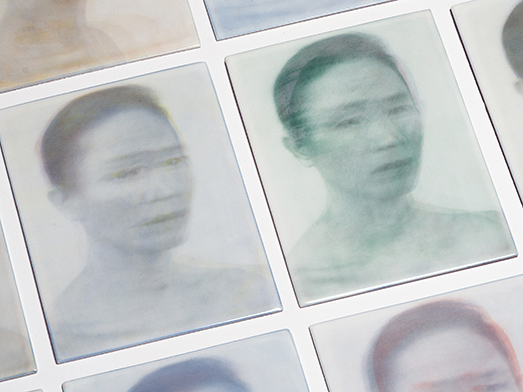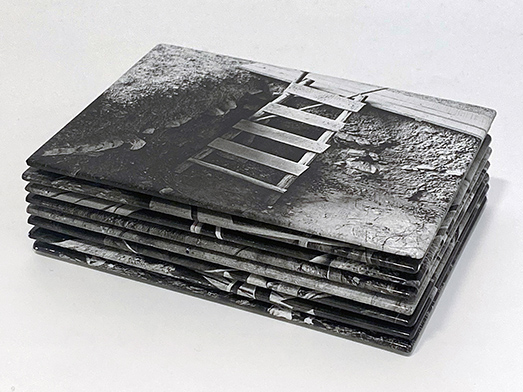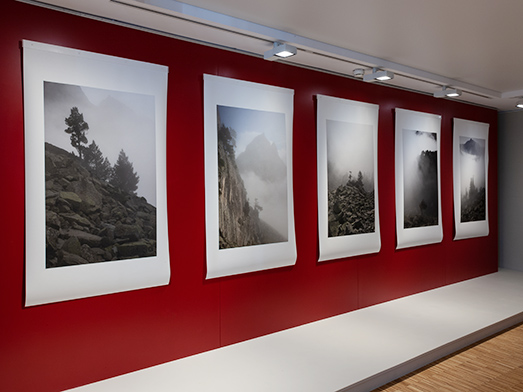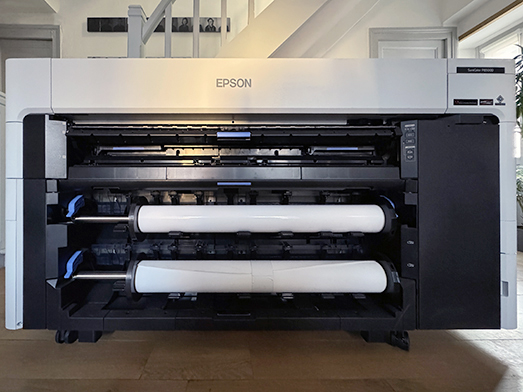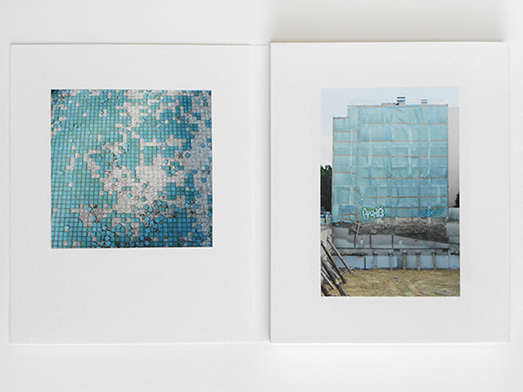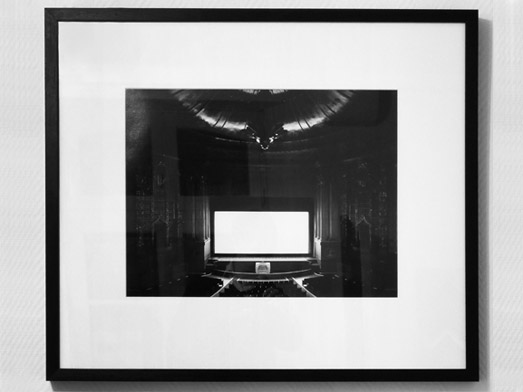 | ||
| FR | | LABORATORY & WORKSHOP | PLATINUM-PALLADIUM | LARGE FORMAT | OTHER PROCESSES | TOOLS | TRAINING COURSES |  |
| CO₂ laser engraving and 3D subsurface | ||||||||||||||||||
| Metal tube and subsurface laser engravers are the workshop's two latest tools for engraving and marking images inside glass. | Laser engraving is an advanced technology used to engrave patterns or images on a wide variety of materials. It uses a concentrated laser beam to remove or modify the surface of a material. The intense heat of the laser vaporizes or burns away a thin layer of the media, creating a permanent etch. With its metal/ceramic tube, the CO₂ engraver allows you to create engraving, marking, and cutting projects using various materials, including wood, acrylic, textiles, paper, glass, ceramics, metal, and more. Subsurface laser engraving (or subsurface laser etching) is a technique that involves engraving inside a transparent material, such as glass or crystal, without altering its outer surface. Engraving, marking, and cutting up to 60x90 cm for the CO₂ engraver. | |||||||||||||||||
| ||||||||||||||||||
| Direct-To-Plate (DTP) engraving | ||||||||||||||||||
| Images engraved on photopolymer plates are made to be presented pigmented or to be used for intaglio printing. | The engraving of photographic images on photopolymer plates is made with the DTP (Direct-To-Plate) process. The pigmentation of an engraved plate is made by manually adding pigment with a brush or using a substrate. Printing from the engraved plate is made using intaglio inks (Charbonnel, Cranfield, etc.) on papers dedicated to engraving, generally composed of natural fibers. Printing with oily inks is one of the most durable photographic printing techniques. Engraved plates up to 79x103 cm | |||||||||||||||||
| ||||||||||||||||||
| Types of paper for digital printing | ||||||||||||||||||
| Numerous
types of paper specifically designed for inkjet printing are available at our workshop. Other paper types, initially produced for other usages, may also be tested and printed on. 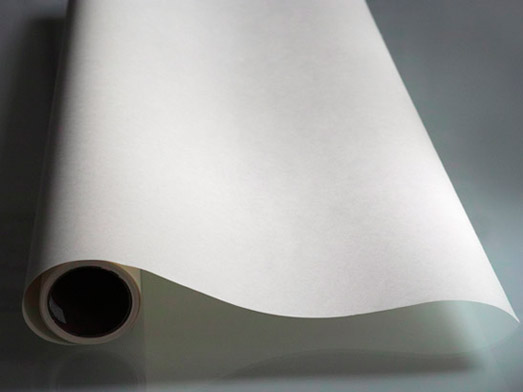 Roll of 118cm 95g Awagami Mitsumata paper for printing 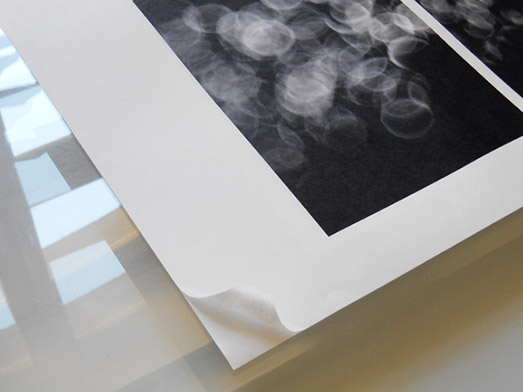 Separation of the double-layered Awagami Kozo paper
| AWAGAMI
FACTORY (Japanese paper) Bamboo - Weight: 250g/m² - Bamboo fibers - Colour: Natural Bamboo Awagami paper is made from very supple bamboo fibers that have a silky touch. Print rendering on it is characterized by a soft look. The paper’s thickness keeps it flat and gives it a luxurious appearance. Bamboo Awagami paper is coated on both sides, allowing for printing on both front and back. Bizan - Weight: 200 et 300g/m² - Mulberry fibers - Colour: Natural Bizan paper is entirely handmade through a traditional process. This luxury paper is generously thick and its four edges are fringed. Thanks to its rigidity and to these features, the images printed on this paper can be exhibited either in a box frame or without being framed. Kozo - Weight: 40, 70 et 170g/m² - Single and double coating - Mulberry fibers - Colours: White and Natural Kozo (“mulberry” in Japanese) paper is made from mulberry fibers from the Tokushima region. It is renowned for its resistance and longevity. This paper has a supple and solid appearance. Inbe - Weight: 70, 125 et 160g/m² - Mulberry and hemp fibers - Colour: Natural The Inbe paper is made from a mixture of mulberry and hemp fibers. While this makes the Inbe paper more resistant, it nevertheless remains a fine and soft type of material. Mitsumata - Weight: 95g/m² - Mitsumata fibers paper pulp - Colour: Natural Mitsumata fibre-paper is known for its warm tone and for its finesse. This smooth paper is made up of two layers that can be separated. HAHNEMÜHLE Similar to the Ultra Smooth but whiter. Bamboo - Weight: 290g/m² - 90% bamboo fibers - 10% cotton Similar to the previous paper, warm tone, strong, velvety, deep. Rice paper - Weight: 100g/m² - 100% Alpha-Cellulose CANSON Infinity Platine Fibre Rag - Weight: 310 g/m² EPSON And so on... | |||||||||||||||||
| Mounting, framing and finishing | ||||||||||||||||||
| The presentation and the protection of prints is an integral part of the printing process. | According
to the type of paper, prints are pressed and then protected by polypropylene sleeves and/or thick card. Prints can be matted and then framed with a standard or invisible (ClearColor®) glass of up to 80 x 120 cm in size. The workshop also creates made-to-measure portfolios and artists’ books from numerous papers. Large format prints are shipped either rolled up or between thick sheets of card. Prints are carefully packaged and are shipped with postage tracking and insurance. | |||||||||||||||||
| ||||||||||||||||||
| | ||||||||||||||||||
 |
12, rue Orbe 64270 Salies-de-Béarn - France C +33 (0)6 32 22 51 11 email : lafolie.laurent@orange.fr |
